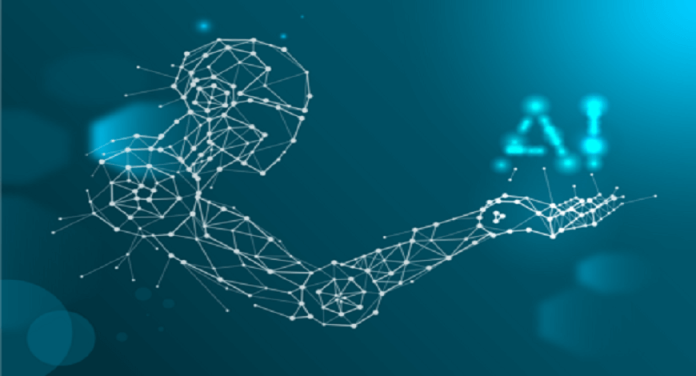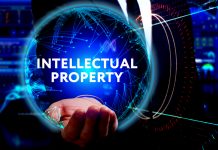This article is written by Vividh Jain, a student of the Institute of Law, NIRMA University. In this article, the author talks about the issues and challenges related to the intellectual property of artificial intelligence.
Table of Contents
Introduction
Artificial intelligence is a combination of engineering and science, to manufacture machines by infusing intelligence in them that can solve problems and even act or perform activities like human beings. Years of complex discoveries and rapid growth have allowed artificial intelligence to evolve dramatically in its ability to perform all the human functions and can perform or act beyond a man’s capacity to the point that the main emphasis has shifted from learning human functions to enhancing functional effectiveness. The advantages of artificial intelligence are diverse and have potential or ability to revolutionize many aspects of life, even in the universe of intellectual property. But the advent of artificial intelligence technology also raises several issues within the intellectual property industry that are likely to be tackled in the near future.
Ownership challenge
A system advanced by artificial intelligence might be responsible for developing the new inventions or for developing new medicinal drugs that may attract the protection for innovation in the form of patents. There are no questions about the effectiveness of artificial intelligence. They are capable enough to create the subject matter which could be protected by Intellectual Property. Artificial intelligence machines can easily produce any object and are capable of launching a new brand name. Now the question arises whether artificial intelligence deserves a status under Intellectual Property?
In order to protect a piece of work under copyright law, the work must come from the skill and labour of the author himself. In general, the first owner of an original work protected by copyright is the ‘author,’ or the person who created that piece of work. Likewise, the designer has the right as he is the first owner of a design he created, and the inventor is the first proprietor of a patent. In these circumstances, the owner is directly related to the subject matter being produced. An invention must include applicability, novelty, and inventive steps for a patent to be granted. The laws related to intellectual property face a major challenge when the legislatures try to answer a question, whether artificial intelligence has taken adequate steps or uses these factors to generate a piece originated after a long research work or not.
Intellectual Property rights must be claimed by a legal entity such as humans, company (as separate legal entities). Now, another question arises whether artificial intelligence has a sufficient legal personality that can own Intellectual Property. Allowing artificial intelligence to protect its own invention which may have consequences in the infringement of Intellectual Property. Therefore, we have no answers to the question. If the subject matter was actually generated by an artificial intelligence machine, who is the first owner of the Intellectual Property?
Infringement of intellectual property
The question is if artificial intelligence can own an Intellectual Property, whether it can infringe the right of the third party or not? Or we can say that if an artificial intelligence machine is acknowledged as being able to produce the subject matter which was already there, now who would be held liable if that subject matter infringes the Intellectual Property of the third parties? The problem is especially relevant in the context of an infringement of copyright which involves actual copying from the copyrighted source, that is, the author of a work which infringed the copyright of a third party must have had access to that copyrighted work. If we discuss the situation related to an artificial intelligence machine, in which we all expect that an artificial intelligence machine must have access to everything available on the internet, the challenge of proving that the infringer had access to the protected work will be much easier to solve.
Again, a variety of nuanced legal questions emerge on the concept of artificial intelligence generating subject matter. Whether or not artificial intelligence has a sufficient legal personality that can own Intellectual Property? Whether it can be sued for infringement or not? If not artificial intelligence, then who is responsible or liable for its infringement of copyright, whether a person who manufactures such technology or a person who got benefit from such infringement?
Liability challenges
If artificial intelligence can create a subject matter, it is worth considering that in some situations it can also be held liable. Artificial intelligence could be subjected to allegations of violation of copyright, trade secrets, or even data privacy, if it analyzes the investment plans of a business or personalizes big data to a marketing advertisement, by the way of auto-copying details from different sources. Similarly, an artificial intelligence which is a type of machine that produces artwork or poetry or generates any 3-Dimensional printing can be charged with a trademark or copyright infringement if it uses the Intellectual Property of others without requesting authorization. Now, a question arises, whether or not an artificial intelligence machine who learns various things on its own and develops a quick and precise process of generating information could be accused of patent infringement for using the protected technology without knowing that it has already been patented. But again the question repeats that, who is responsible or liable for its infringement of copyright?
There is a concern that artificial intelligence might be able to create such inventions that are completely against the betterment of human lives. In such cases where artificial intelligence users should be able to foresee the results and outcomes, or are responsible for managing and caring artificial intelligence, then they could be held liable. Nonetheless, if artificial intelligence functions autonomously and can work without any direct programming, develop anything through self-learning and go beyond predictability, then the liability or responsibility can fall upon the artificial intelligence itself.
Issues related to legislation
It has been noticed that the laws related to Intellectual Property have changed and modified from time to time because of their dynamic existence and continuous new developments by human beings. There must be a requirement for amendments in existing laws related to Intellectual Property in order to regulate the innovation solely created by an artificial intelligence machine and to decide which work should remain in the public domain. Also, the legislators must enact those laws which help in to decide which parties should be entitled to such creation and acknowledged as the owners of Intellectual Property resulting from the creation of artificial intelligence. In order to overcome this problem regarding the regulation of artificial intelligence, all countries have to recognize the same limits and fundamentals for producing artificial intelligence and create legislation covering the remedies and each country’s regulatory framework. This is the only way to resolve the disputes related to the Intellectual Property of the artificial intelligence machine.
Policy challenges
The scientific publications and patent data are evidence of the rapid pace of artificial intelligence innovation. This trend has been combined with the application of many artificial intelligence technologies and their future impact on the everyday lives of people, means artificial intelligence technologies pose a policy challenge for government, policymakers, and regulators. These challenges include the protection of personal data of every citizen, the development of standards and norms related to data sharing, how innovation can be funded, the regulation of new artificial intelligence technologies, and also to save human beings from the risk originated from highly advanced artificial intelligence machines.
Possible solutions to overcome these challenges
Despite the controversy and challenges, there is a need to generate a practical and appropriate way to deal with the current situation. The results generated by artificial intelligence are either an outcome of its own intelligence or an algorithm. If the artificial intelligence machine’s function is merely mechanical, rather than inventive, artificial intelligence might be considered to lack creativity. The existing Intellectual Property law of any country would not identify artificial intelligence as an owner of Intellectual Property. Therefore, artificial intelligence technology would not be able to get ownership for any creation until and unless it’s able to achieve the legal personality status similar to humans. Most countries’ existing Intellectual Property laws require that any rights holder must have a legal personality that is lacking in the case of artificial intelligence.
In the near future, artificial intelligence will soon be able to transcend human intelligence and lead the society to discoveries, and to achieve these goals, the Intellectual Property law of the country must safeguard the interest of artificial intelligence technologies. If artificial intelligence can prove an independent innovation, it might be considered a potential author and could be able to claim a copyright for such innovation as other human authors. artificial intelligence machines capable of improving and extending their capabilities through learning and training might be qualified for patent ownership for the innovation they produce.
There is a concern that artificial intelligence might be able to create such inventions that are completely against the betterment of human lives. In such cases where artificial intelligence users should be able to foresee the results and outcomes, or are responsible for managing and caring for artificial intelligence, then they could be held liable. Nonetheless, if artificial intelligence functions autonomously and can work without any direct programming, develop anything through self-learning and go beyond predictability, then the liability or responsibility can fall upon the artificial intelligence itself. The legislation should be drafted in such a way that will ensure that human beings have the right to override any artificial intelligence decision and also grant power to human beings to control the functioning of artificial intelligence.
If we take a look at the main objectives of the Intellectual Property law, the key policy of these laws exists to grant exclusive rights to investors or creators in order to enjoy the benefits provided by their respective works. If the same rights were given to artificial intelligence technologies, they would also be able to recognize the achievement they incurred from such creation or by inventing any subject matter and would enjoy the privileges. However, giving value to innovation that provides benefit to the general public is a fundamental goal of the Intellectual Property law, and excluding such innovation from granting rights would be inconsistent with the Intellectual Property law. It would be contrary to the provision related to Intellectual Property law if the legislator considered creativity and innovation over the betterment of human beings. There must be a reasonable balance between these two conditions.
Scope of improvement in artificial intelligence under intellectual property law
The rights of artificial intelligence under Intellectual Property law can only be considered when the case related to these issues knocks the door of the courts. To answer the question like:
- whether artificial intelligence deserves a status under Intellectual Property?
- whether artificial intelligence has taken adequate steps or uses applicability, novelty, and inventive steps to generate a piece of work research or not?
- whether artificial intelligence has a sufficient legal personality which can own Intellectual Property?
- if the subject matter was actually generated by an artificial intelligence machine, who is the first owner of the Intellectual Property?
- Whether artificial intelligence can be able to infringe on the intellectual property rights of the third party?
Relevant case laws, proper interpretation of Intellectual Property laws, reasonable enactments, policies, legislation, etc. must be there, in order to analyze the rights of artificial intelligence technology as well as of human beings and must be in the public interest.
Conclusion
In Saudi Arabia, a humanoid named Sophia, an artificial intelligence robot has inherited rights that are available to the citizens of Saudi Arabia and has been granted citizenship of Saudi Arabia in 2017. In the near future, artificial intelligence will get acknowledgement for their contributions to society. In the near future, artificial intelligence has a dramatic effect on what it means to be human and even can perform what normal humans cannot. There must be a proper balance between the utilization and commercialization of the innovation created by artificial intelligence so it can provide reasonable benefits to the artificial intelligence machine and must provide benefits to the public at large or we can say that it must be of public interest.
References
- https://www.wipo.int/wipo_magazine/en/2019/01/article_0001.html
- https://www.lexology.com/library/detail.aspx?g=d5acda9a-7e17-4a0e-b9a1-34bd4a8b4248
- https://businessnewswales.com/artificial-intelligence-challenges-for-intellectual-property/
LawSikho has created a telegram group for exchanging legal knowledge, referrals and various opportunities. You can click on this link and join:
 Serato DJ Crack 2025Serato DJ PRO Crack
Serato DJ Crack 2025Serato DJ PRO Crack











 Allow notifications
Allow notifications


